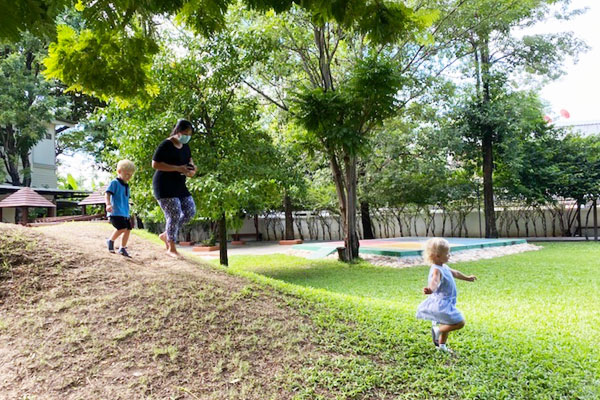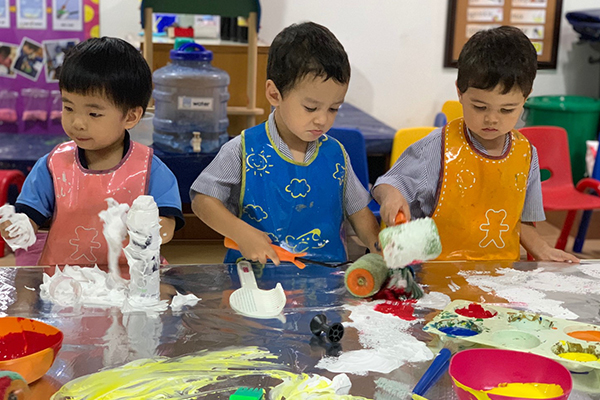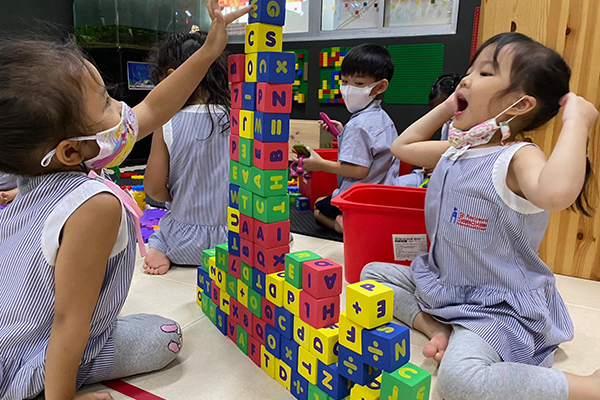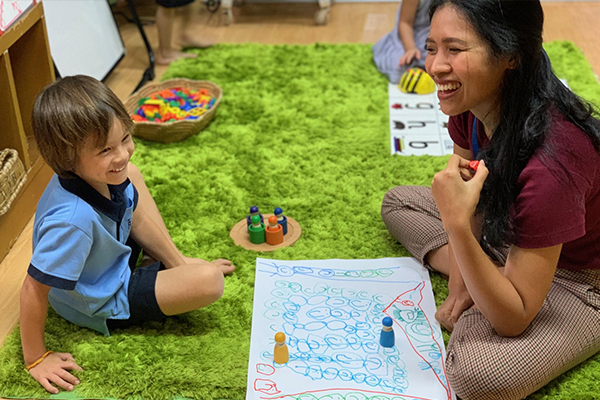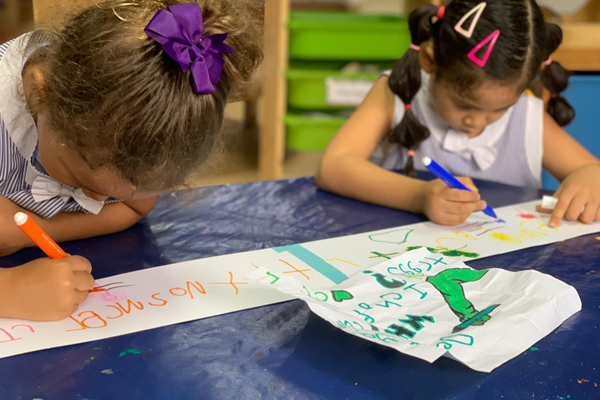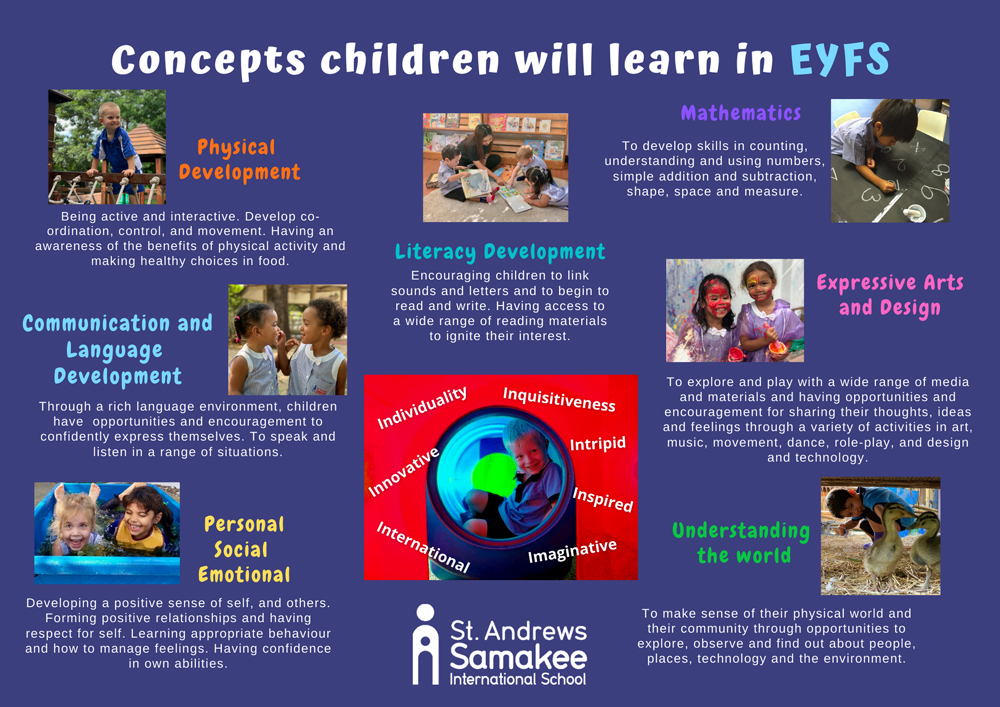The children in the early years learn in an extremely vibrant and inclusive environment, inside and outdoors, that supports their many different approaches to learning. ISQM Accreditation Report May 2018
Early Years Foundation Stage (EYFS) is based on the UK curriculum and it’s how we describe the time in your child’s life in school from Little Learners to age 5.
This is a very important stage as it helps prepare your child for their future learning and successes. From when your child is born up until the age of 5, their early years’ experience should be happy, active, exciting, fun and secure; and support their development, care and learning needs.
There are 7 statutory areas covered in the statutory Foundation Years framework
Three prime areas:
- Personal, social and emotional development
- Communication and language development
- Physical development
Four specific areas:
- Literacy
- Mathematics
- Understanding the World
- Expressive Art and Design
The first three areas are of prime importance and necessary for effective development and achievement in the early years and beyond. The specific areas help to support a rounded approach to child development. All areas are delivered through planned, purposeful play, with a balance of adult-led and child-initiated activities both inside and outside.
Play-based learning (PBL) takes place daily and incorporates all the EYFS Early Learning Goals.
Teaching is differentiated to meet the needs of the individual child, and this is achieved through the use of language and the varied complexity of interesting and enjoyable activities. At different times of each day, all the children in EYFS work together in mixed age and ability groups and develop relationships with both younger and older children.
As they learn from each other, help each other and inspire each other, they build their confidence and self-esteem in a social group setting.
Please come and see for yourself!



